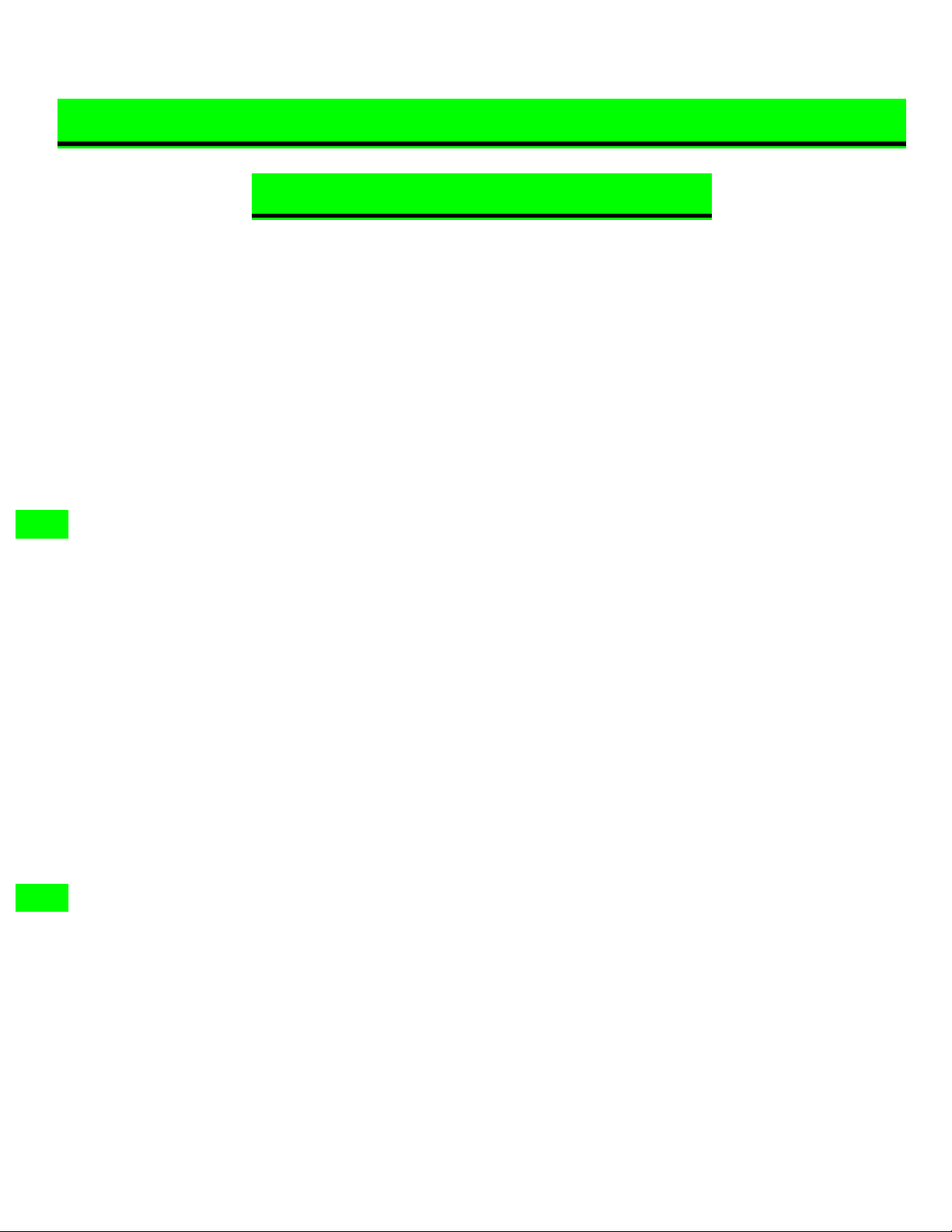
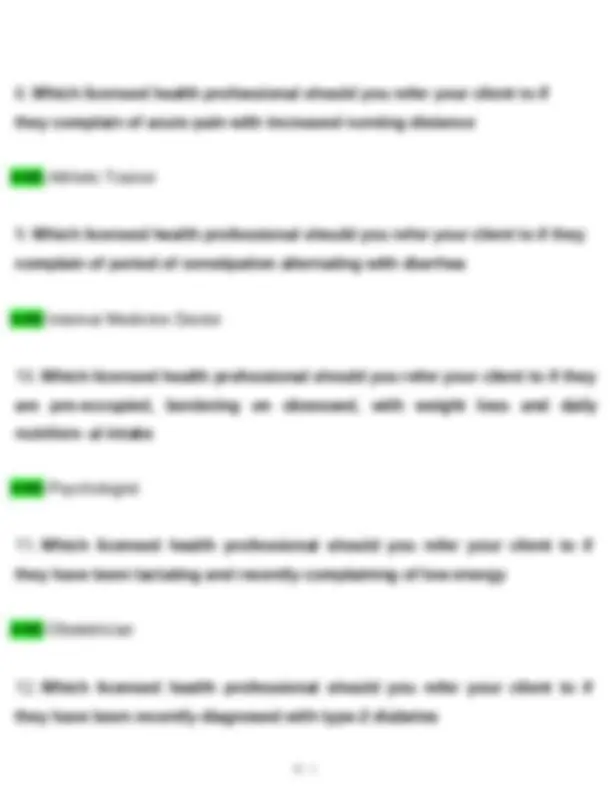
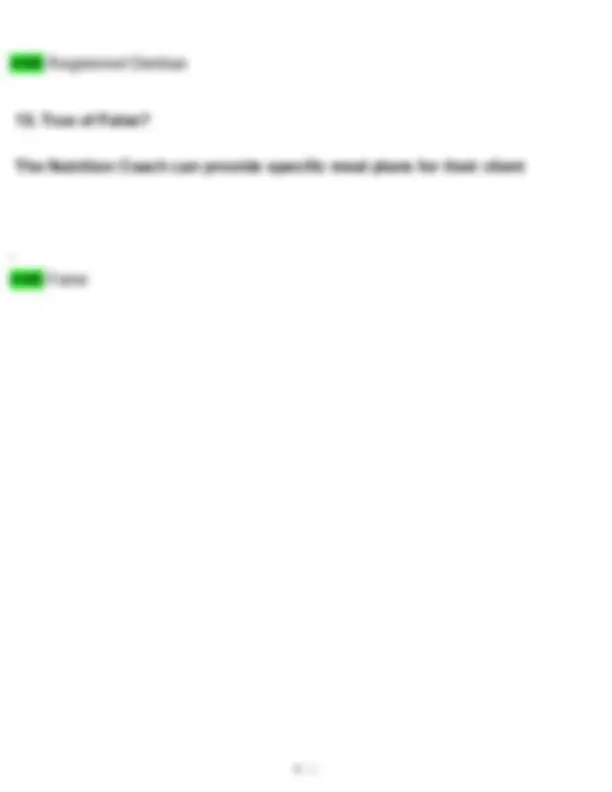
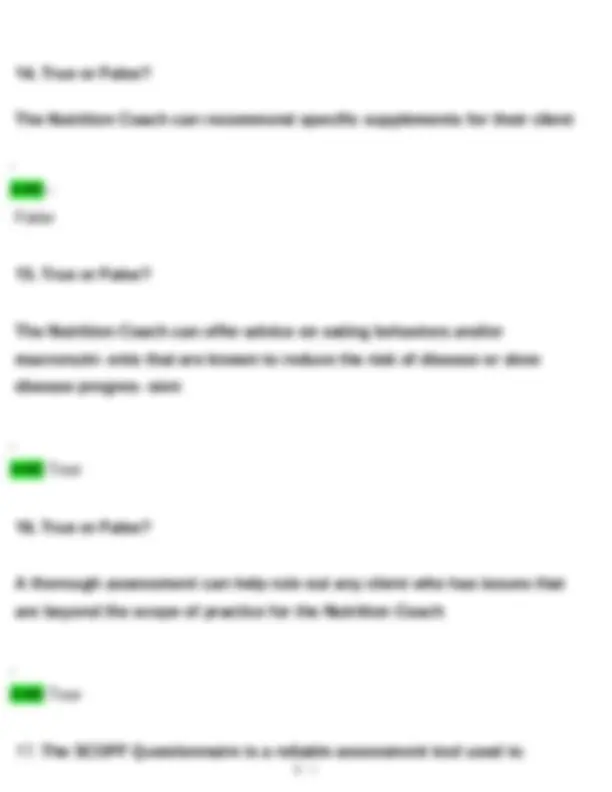
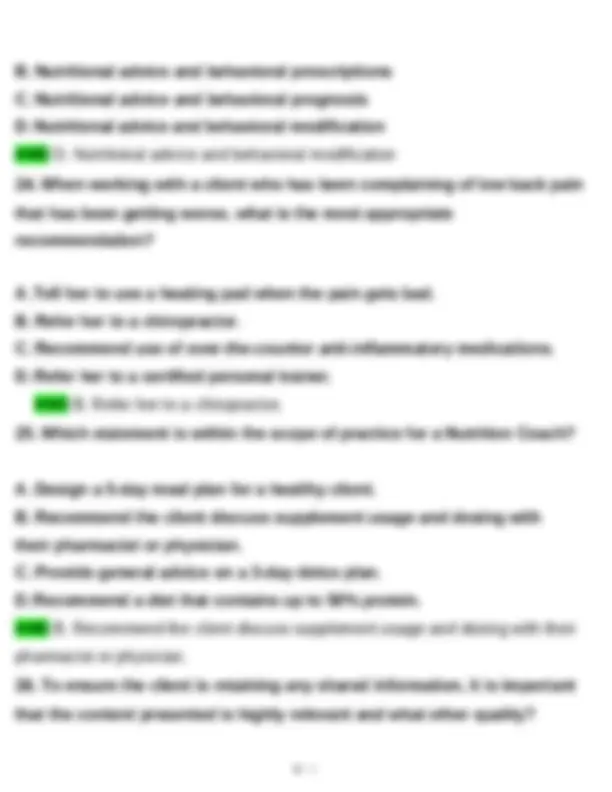
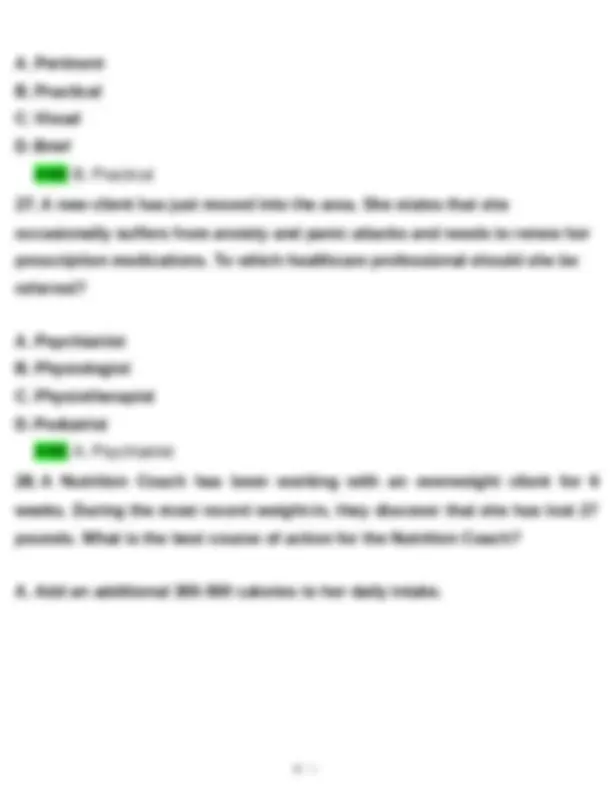

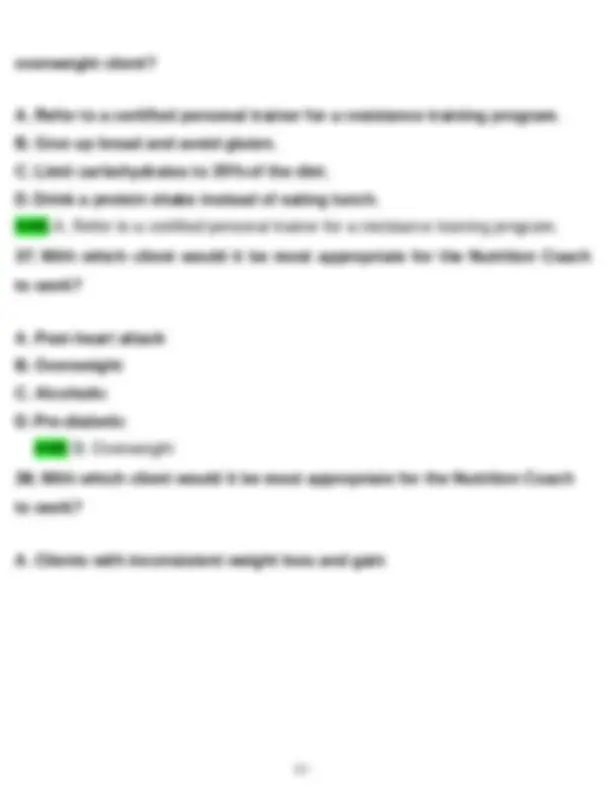
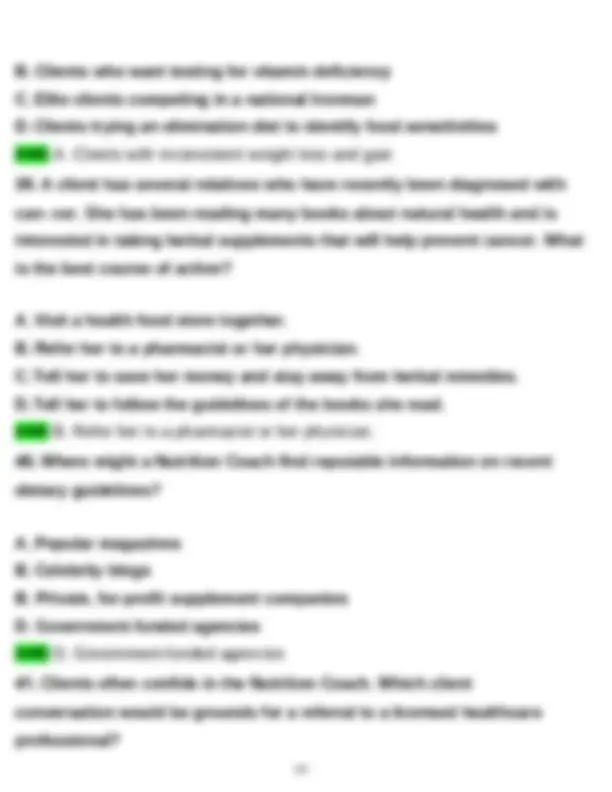
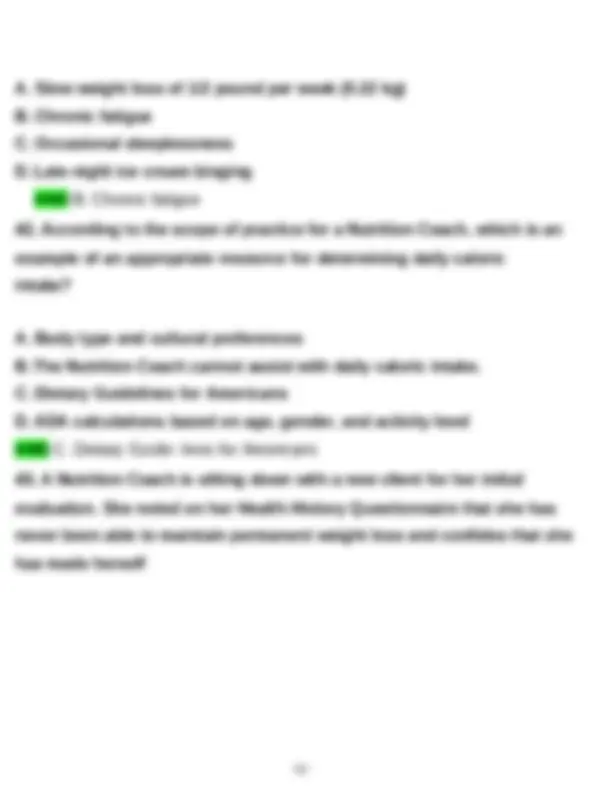
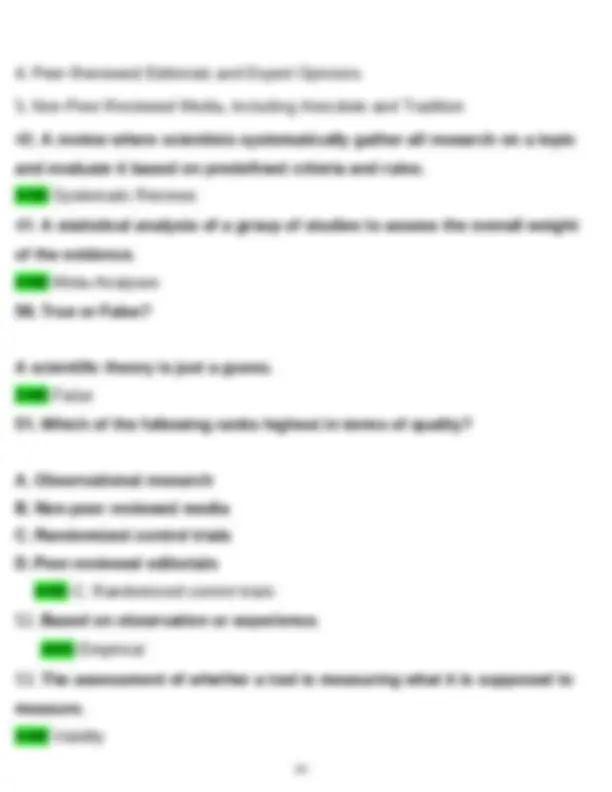

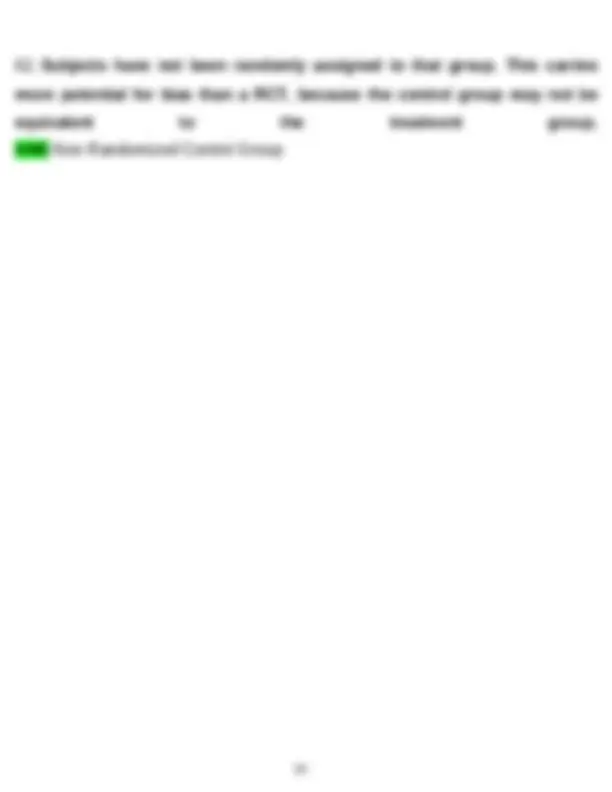
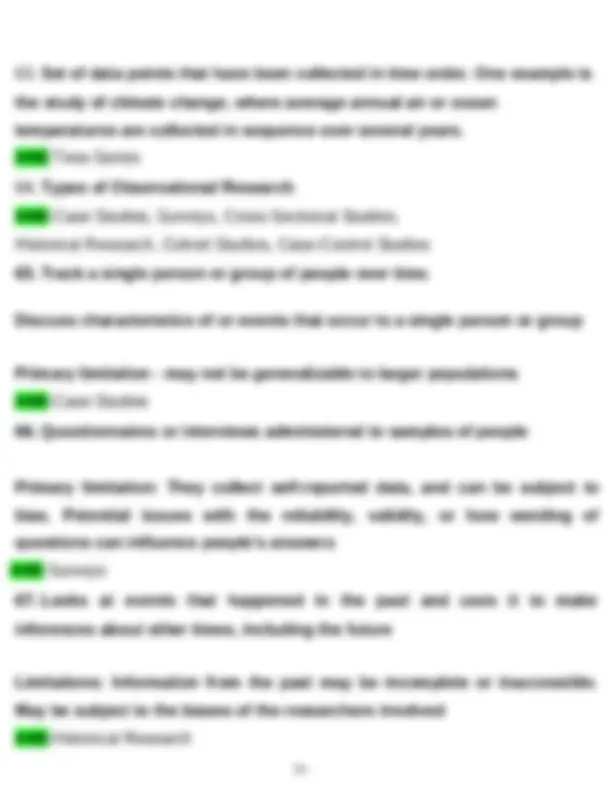
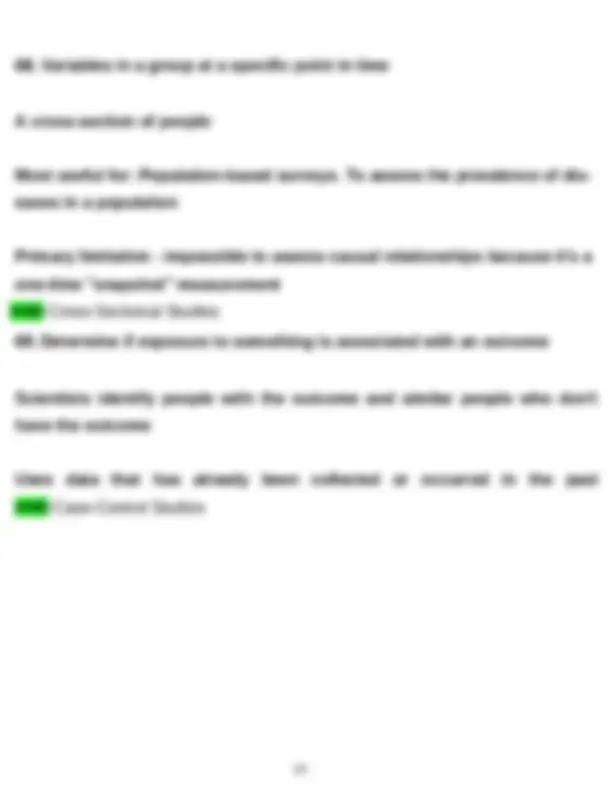



Study with the several resources on Docsity

Earn points by helping other students or get them with a premium plan


Prepare for your exams
Study with the several resources on Docsity

Earn points to download
Earn points by helping other students or get them with a premium plan
Community
Ask the community for help and clear up your study doubts
Discover the best universities in your country according to Docsity users
Free resources
Download our free guides on studying techniques, anxiety management strategies, and thesis advice from Docsity tutors
1. NASM nutrition exam study guide 2. How to prepare for NASM nutrition certification test 3. NASM nutrition exam practice questions 4. NASM nutrition coaching exam tips and tricks 5. Best resources for NASM nutrition exam preparation 6. NASM nutrition exam passing score requirements 7. NASM nutrition certification exam difficulty level 8. How long to study for NASM nutrition exam 9. NASM nutrition exam retake policy 10. NASM nutrition coaching exam format and structure 11. NASM nutrition exam sample questions with answers 12. NASM nutrition certification exam cost breakdown 13. NASM nutrition exam online proctoring options 14. NASM nutrition coaching exam time limit 15. NASM nutrition exam topics to focus on 16. NASM nutrition certification exam study schedule 17. NASM nutrition exam flashcards and mnemonics 18. NASM nutrition coaching exam success stories 19. NASM nutrition exam vs other nutrition certifications 20. NASM nutrition exam recertification requirements
Typology: Exams
1 / 23

This page cannot be seen from the preview
Don't miss anything!
















1. True or False? A Nutrition Coach can provide clients non-medical nutrition information and behavior guidance . ANS True 2. True or False? Every region requires that a Nutrition Coach work under the supervision of a Registered Dietitian . ANS False
ANS Psychologist
ANS Registered Dietitian
13. True of False? The Nutrition Coach can provide specific meal plans for their client . ANS False
14. True or False? The Nutrition Coach can recommend specific supplements for their client . ANS - False 15. True or False? The Nutrition Coach can offer advice on eating behaviors and/or macronutri- ents that are known to reduce the risk of disease or slow disease progres- sion . ANS True 16. True or False? A thorough assessment can help rule out any client who has issues that are beyond the scope of practice for the Nutrition Coach . ANS True
ANS False
21. True or False? When it comes to client confidentiality, all personal information should be kept in a locked or secure area . ANS True 22. True or False? If the Nutrition Coach intends to work as an employee in a private health club, it is important to consult with an attorney and accountant to ensure proper business practices . ANS True 23. Which of the following can a Nutrition Coach provide? A. Nutritional advice and behavioral counseling
B. Nutritional advice and behavioral prescriptions C. Nutritional advice and behavioral prognosis D. Nutritional advice and behavioral modification ANS D. Nutritional advice and behavioral modification
24. When working with a client who has been complaining of low back pain that has been getting worse, what is the most appropriate recommendation? A. Tell her to use a heating pad when the pain gets bad. B. Refer her to a chiropractor. C. Recommend use of over-the-counter anti-inflammatory medications. D. Refer her to a certified personal trainer. ANS B. Refer her to a chiropractor. 25. Which statement is within the scope of practice for a Nutrition Coach? A. Design a 5-day meal plan for a healthy client. B. Recommend the client discuss supplement usage and dosing with their pharmacist or physician. C. Provide general advice on a 3-day detox plan. D. Recommend a diet that contains up to 50% protein. ANS B. Recommend the client discuss supplement usage and dosing with their pharmacist or physician. 26. To ensure the client is retaining any shared information, it is important that the content presented is highly relevant and what other quality?
B. Informally question her about common eating disorder traits/habits. C. Suggest she limit her exercise to twice per week. D. Congratulate her for a job well done. ANS B. Informally question her about common eating disorder traits/habits.
29. Common assessments performed by a Nutrition Coach include height, weight, body composition, and what other test? A. Hydrostatic weighing B. Anthropometric measurements C. Blood pressure D. SCOFF test ANS B. Anthropometric measurements 30. It is not uncommon for clients to confide in the Nutrition Coach. Which client conversation would be grounds for a referral to a licensed healthcare professional? A. Daily panic attacks B. Self-proclaimed "sugar addict" C. Occasional constipation D. Stress-eating from recent divorce ANS A. Daily panic attacks 31. Which statement best describes the healthcare continuum? A. The type of alternative health practices that are legitimately recognized B. The many disciplines that make up the healthcare system
C. The number of physician specialists that are in the healthcare system D. The health status of a client from sickness to wellness ANS B. The many disci- plines that make up the healthcare system
32. A client confides that she is taking laxatives to help her lose weight. What is the best course of action? A. Refer her to a Registered Dietitian. B. Tell her that regular use of laxatives are bad for her digestive tract. C. Refer her to a Certified Eating Disorder Specialist. D. Tell her to eat more fiber as that will help. ANS C. Refer her to a Certified Eating Disorder Specialist. 33. Where should client files be kept to ensure client confidentiality? A. In the manager's office B. With the client
overweight client? A. Refer to a certified personal trainer for a resistance training program. B. Give up bread and avoid gluten. C. Limit carbohydrates to 35% of the diet. D. Drink a protein shake instead of eating lunch. ANS A. Refer to a certified personal trainer for a resistance training program.
37. With which client would it be most appropriate for the Nutrition Coach to work? A. Post-heart attack B. Overweight C. Alcoholic D. Pre-diabetic ANS B. Overweight 38. With which client would it be most appropriate for the Nutrition Coach to work? A. Clients with inconsistent weight loss and gain
B. Clients who want testing for vitamin deficiency C. Elite clients competing in a national Ironman D. Clients trying an elimination diet to identify food sensitivities ANS A. Clients with inconsistent weight loss and gain
39. A client has several relatives who have recently been diagnosed with can- cer. She has been reading many books about natural health and is interested in taking herbal supplements that will help prevent cancer. What is the best course of action? A. Visit a health food store together. B. Refer her to a pharmacist or her physician. C. Tell her to save her money and stay away from herbal remedies. D. Tell her to follow the guidelines of the books she read. ANS B. Refer her to a pharmacist or her physician. 40. Where might a Nutrition Coach find reputable information on recent dietary guidelines? A. Popular magazines B. Celebrity blogs B. Private, for-profit supplement companies D. Government-funded agencies ANS D. Government-funded agencies 41. Clients often confide in the Nutrition Coach. Which client conversation would be grounds for a referral to a licensed healthcare professional?
throw up after eating large meals. What is the best course of action? A. Refer her to a clinical psychologist. B. Tell her she may have anorexia and refer her to a Certified Eating Disorder Specialist. C. Move forward with the client sessions but monitor her closely for any more self-induced vomiting. D.Tell her she has bulimia and refer her to a Certified Eating Disorder Special- ist. ANS A. Refer her to a clinical psychologist.
44. Identify the 3 components of evidence-based practice from the list below. A. Weight of evidence B. Anecdotes C. Field observations D. Blog posts from fitness gurus E. Client needs and preferences ANS A. Weight of evidence C. Field observations E. Client needs and preferences 45. Order the steps of the scientific method by matching the letter to the appropriate step. A. Form a hypothesis. B. Collect data, synthesize it, and interpret it. C. Identify a problem.
D. Design a study or test method. E. Collect data, synthesize it, and interpret it. ANS C. Identify a problem. A. Form a hypothesis. D. Design a study or test method. B. Collect data, synthesize it, and interpret it. E. Collect data, synthesize it, and interpret it.
46. True or False? Scientists identify what is most likely to be true by demonstrating what is not true. ANS True